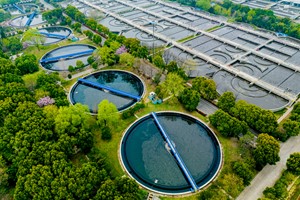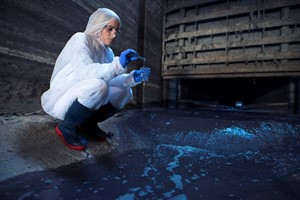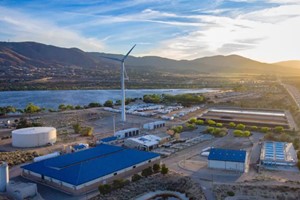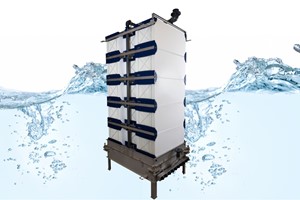A new study by Colorado State University researchers shows that switching to greener ways of treating wastewater in the United States could be good for both the environment and the wallet.
The research, led by Braden Limb, a Ph.D. student, looked at the possibility of using carbon offsets to pay for improvements in wastewater treatment infrastructure.
Nature's Way
The study suggests that using natural solutions like building wetlands and planting trees could save $15.6 billion and prevent nearly 30 million tons of carbon dioxide emissions over 40 years. This would be achieved by moving away from traditional methods that rely on a lot of concrete and machinery, and towards more natural approaches.
Limb says this research is a good starting point for figuring out how to use green solutions for wastewater treatment. "This study shows what benefits we could get by using greener methods, like saving money and reducing pollution," he said.
Cutting Pollution at the Source
Right now, wastewater treatment plants use a lot of energy to clean water. The researchers say that stricter regulations might only make things worse, because even more energy would be needed. They believe a better approach would be to find ways to reduce pollution before it gets into the water in the first place.
The study also looked at how things like runoff from farms and development areas pollute freshwater. The researchers say that instead of building more treatment plants, we should use carbon markets to pay for natural solutions that address these sources of pollution.
Carbon Credits to the Rescue
Carbon markets allow people and companies to trade credits for reducing or capturing carbon emissions. The study suggests that these markets could be a key part of the switch to green wastewater treatment.
The researchers believe that connecting water quality trading programs with carbon markets could bring in $679 million every year, which would encourage more communities to adopt green solutions.
Water and Climate, Working Together
Professor Jason Quinn, another researcher on the study, says it's important to consider both air and water quality. "Water pollution is a local problem, but climate change is global," he said. "By combining these markets, we can improve our rivers and fight climate change at the same time."
This research shows that green wastewater treatment is not only good for the environment, but it can also save money. It can also help fight climate change and improve the health of our ecosystems.














